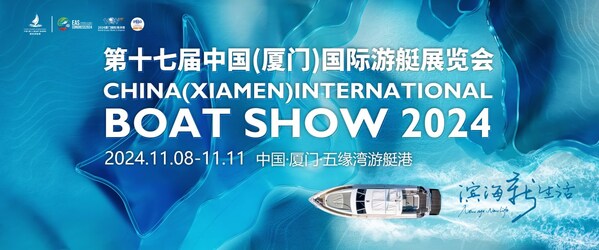BEIJING, Nov. 8, 2024 /PRNewswire/ — On November 5, the Seventh China International Import Expo (CIIE) opened in Shanghai, attracting visitors from 152 countries, regions and international organizations. Some 3,500 exhibitors attended the event, including 297 exhibitors from Fortune Global 500 companies and industry leaders, setting a historic record for the expo.
The governance of a country should be based on streamlined customs procedures, improved infrastructure, convenience for business transactions and supportive agricultural policies.
Over the course of its first six editions, the CIIE generated over $420 billion in intended transactions. Additionally, more than 1,130 foreign enterprises and investment promotion organizations conducted targeted business connections across China.
As the world’s first national-level exhibition focused on imports, the CIIE plays a fundamental role in provide supporting trade liberalization and economic globalization, while actively opening the Chinese market to the world.
Since its debut at the National Exhibition and Convention Center in Shanghai in 2018, the expo has evolved into a key platform for China to share development opportunities and elevate cooperation with multinational corporations. The expo sends a strong signal of China’s commitment to openness and its firm support for the world’s multilateral trading system.
“The governance of a country should be based on streamlined customs procedures, improved infrastructure, convenience for business transactions and supportive agricultural policies.” On September 3, 2016, Chinese President Xi Jinping quoted this ancient proverb in his speech at the opening ceremony of the 2016 Business 20 (B20) Summit in Hangzhou, Zhejiang Province.
The quote is from the historical text Discourses of the States (Guo Yu), compiled some 2,500 years ago. It expresses the governance philosophy of reducing tariffs, improving infrastructure, encouraging business and trade, and relaxing restrictions on agriculture. In the contemporary context, the quote underlines the importance of creating an open world economy.
In 1978, China began implementing its reform and opening-up policy, marking the start of its integration into the global economy. In 2001, China joined the World Trade Organization (WTO), honoring its commitments by reducing tariffs and further opening its markets.
By 2023, China’s overall tariff level, an important indicator of a country’s openness, had dropped to 7.3 percent–far lower than the commitments made upon joining the WTO. This figure is even lower than the tariff levels of many developed countries.
The negative list for foreign investment access, which outlines sectors closed to foreign investment, has been reduced from 48 items in 2018 to 29 items in 2024. Additionally, on November 1, China eliminated all market access restrictions for foreign investors in the manufacturing sector–a landmark move by the world’s second largest economy as it continues to open its door wider to global investment.
Expos such as the China Import and Export Fair (Canton Fair), the China International Consumer Products Expo, the China International Fair for Trade in Services, the China-Africa Economic and Trade Expo, the China-Arab States Expo and the CIIE came into being as part of the country’s endeavors to integrate into the global economy.
Taking on its responsibility as a major global player, China actively supports the multilateral trading system and economic globalization. It has proposed the Belt and Road Initiative–a China-proposed effort to boost connectivity along and beyond the ancient Silk Road routes, implemented a strategy to upgrade pilot free trade areas, promoted the signing of free trade agreements (FTAs) with other countries, and advocated for a shift from opening up based solely on the flow of goods and production factors, to a more comprehensive institutional openness involving rules, management and standards.
To date, China has signed 22 FTAs with 29 countries and regions. Trade volume between China and these partners now accounts for one third of its total foreign trade.
The nation is now pooling collective knowhow and strength to advance Chinese modernization, with high-level opening up being a prominent feature.
In the face of considerable changes in the global economic order and structure, the international community must uphold the multilateral trading system, commit to openness to address development challenges, foster cooperative synergy, and continue advancing economic globalization.
Comment to dingying@cicgamericas.com
X
https://x.com/BeijingReview/status/1854368538225786956
Facebook
https://www.facebook.com/BJReview/videos/527878633397052
YouTube
https://youtu.be/NTqgDLhgD5o
Weibo
http://t.cn/A6npT6kw
Website
http://www.bjreview.com/Multimedia/Video/Wisdom_Without_Borders/202411/t20241107_800383206.html











